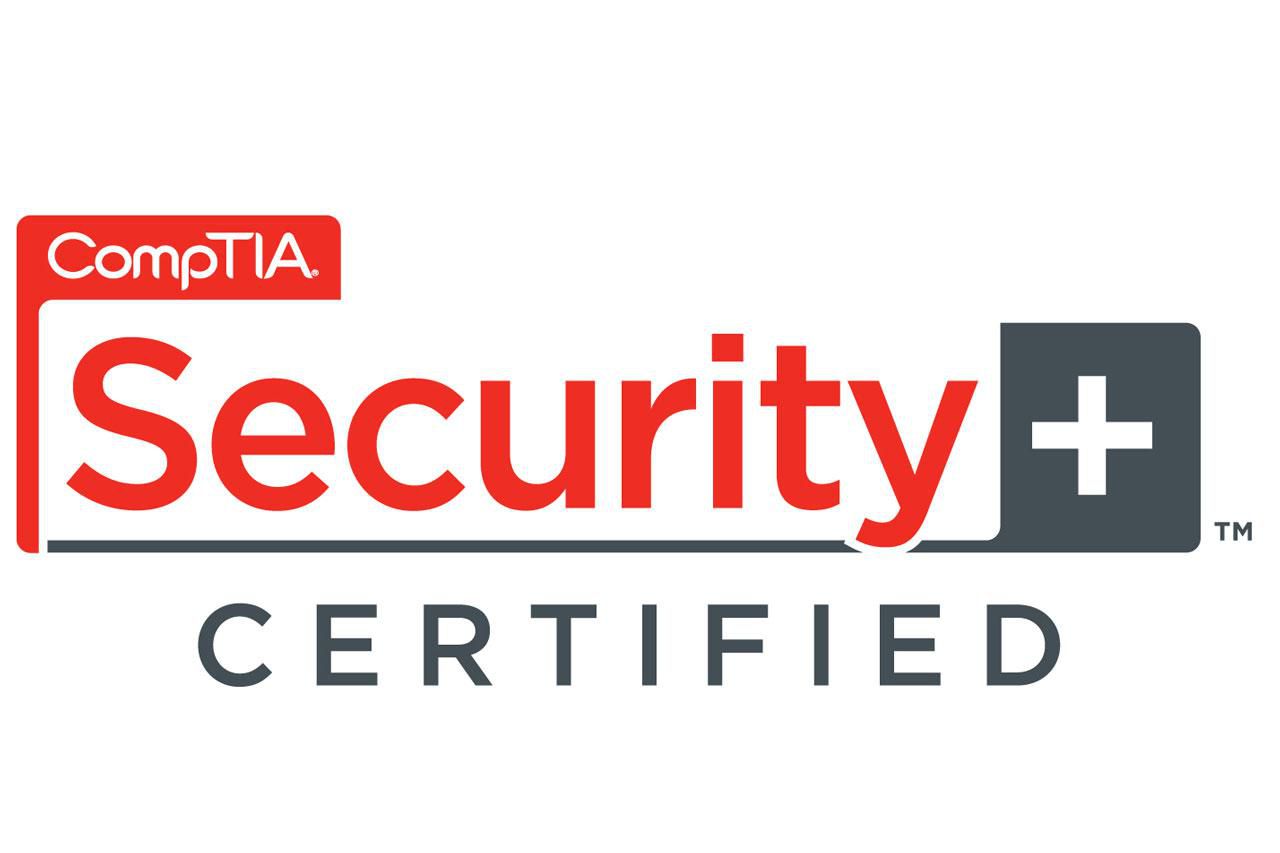A business information security officer (BISO) is a senior-level executive who plays a crucial role in safeguarding the information assets of a business or organization. They are responsible for developing and implementing information security and cybersecurity strategies to protect sensitive data and mitigate cyber threats. In an increasingly digital world, the BISO’s expertise is essential for maintaining the confidentiality, integrity, and availability of critical information.
If you’re interested in pursuing a career in information security and becoming a BISO, there are various paths you can take. This article will explore the educational requirements, necessary skills, job responsibilities, and career advancement opportunities for aspiring BISOs. Whether you’re already working in the field or just starting your journey, this guide will provide valuable insights on how to establish yourself as a trusted and capable business information security officer.
Key Takeaways:
- A BISO is a senior-level executive responsible for managing information security and cybersecurity for a business or organization.
- Education options for becoming a BISO include degree programs in IT management, cybersecurity policy, business administration with an information security focus, and certifications or bootcamps.
- Important skills for a BISO include business acumen, technical expertise, communication skills, risk management principles, and project management abilities.
- BISOs are responsible for developing security policies, conducting risk assessments, managing security incidents, and ensuring compliance with security regulations.
- Career paths for BISOs can involve gaining certifications, pursuing higher education, and accumulating experience in security program management.
Important Skills for a BISO
To be an effective BISO, individuals need to possess a diverse skill set. This includes strong business acumen to understand and communicate the value of cybersecurity investments to business leaders. Technical skills are also crucial, as BISOs must have a deep understanding of cybersecurity technologies and IT systems. Communication skills are essential for effectively engaging with both technical and non-technical staff. BISOs should also have a strong understanding of risk management principles and possess project management skills to oversee cybersecurity initiatives.
| Skill | Description |
|---|---|
| Business Acumen | Understand and communicate the value of cybersecurity investments to business leaders. |
| Technical Skills | Have a deep understanding of cybersecurity technologies and IT systems. |
| Communication Skills | Effectively engage with both technical and non-technical staff. |
| Risk Management Principles | Strong understanding of risk management principles. |
| Project Management Skills | Oversee cybersecurity initiatives. |
Developing and honing these skills is key to succeeding as a BISO and ensuring that cybersecurity is effectively integrated into organizational strategies.
Educational Paths to Becoming a BISO
For aspiring business information security officers (BISOs), various educational paths can lead to a successful career in the field. These paths typically involve a combination of science and management degrees that provide a strong foundation in both technical and business aspects of information security management.
One common educational route is pursuing a degree in IT management. This program equips students with the necessary skills to effectively manage information technology resources within an organization while also understanding the principles of information security.
Another option is obtaining a degree in cybersecurity policy. This program focuses on the legal, ethical, and policy dimensions of cybersecurity, preparing individuals to address complex cybersecurity challenges and develop effective security strategies.
A degree in business administration with a concentration in information security is also a viable path. This program provides a solid understanding of business principles alongside specialized knowledge in information security, enabling BISOs to align security strategies with organizational goals.
For individuals with a technical inclination, degrees in computer science or information technology can be pursued. These programs provide in-depth knowledge of computer systems and networks, which is essential for addressing the technical aspects of information security management.
Alternatively, individuals with a background in law can consider obtaining a law degree with a focus on information security law. This specialized degree equips BISOs with the legal expertise and understanding of regulatory frameworks necessary for effectively managing security programs.
It’s worth noting that individuals can also enter the field without a traditional four-year degree. Certifications and bootcamps offer an alternative path to gaining the necessary skills and knowledge. In fact, many professionals start their careers in information security by obtaining industry-recognized certifications such as CISSP, CISM, CRISC, CEH, or CompTIA Security+. You will find quick guides on how to prepare for all these certifications in our Education section.
Regardless of the path chosen, continuous learning and staying updated with the latest advancements in cybersecurity is crucial for BISOs to effectively protect and secure their organizations’ information assets.
| Degree | Description |
|---|---|
| IT Management | A degree focusing on the management of information technology resources within an organization, with a specific emphasis on information security. |
| Cybersecurity Policy | A degree program that explores the legal, ethical, and policy dimensions of cybersecurity, enabling individuals to develop effective security strategies. |
| Business Administration with Information Security Focus | A degree that combines business principles with specialized knowledge in information security, emphasizing the alignment of security strategies with organizational goals. |
| Computer Science | A technical degree that provides in-depth knowledge of computer systems and networks, essential for addressing the technical aspects of information security. |
| Information Technology | A degree program that focuses on the design, implementation, and management of information systems, including the security of those systems. |
| Law Degree with Information Security Focus | A specialized law degree that equips individuals with the legal expertise and understanding of regulatory frameworks necessary for effectively managing security programs. |
Obtaining relevant degrees and certifications not only demonstrates a commitment to the field but also enhances the knowledge and skills needed to excel as a BISO. Regardless of the educational path chosen, aspiring BISOs should always stay updated with the latest trends and best practices in information security to effectively protect their organizations from emerging threats.
Job Description and Responsibilities of a BISO
A Business Information Security Officer (BISO) plays a critical role in overseeing cybersecurity within an organization. They serve as the primary security contact for the board of directors and are responsible for developing and implementing robust security policies, procedures, and controls to safeguard sensitive information.
The responsibilities of a BISO include:
- Conducting risk assessments to identify potential vulnerabilities and develop strategies to mitigate them
- Managing security incident response, including investigating and resolving security breaches
- Ensuring compliance with relevant security regulations and standards
- Acting as a liaison between the technical and non-technical staff to facilitate effective communication and collaboration
- Tracking and monitoring security budgets to ensure adequate resources are allocated for cybersecurity initiatives
- Integrating cybersecurity into new tech initiatives from the outset, ensuring a proactive approach to protecting critical information
The BISO is instrumental in establishing and maintaining a strong cybersecurity posture for the organization. They work closely with other stakeholders to develop comprehensive security strategies and ensure adherence to industry best practices.
Having strong leadership, communication, and problem-solving skills is crucial for success in this role. BISOs must stay updated with the latest security threats and trends to effectively protect the organization’s information assets.
| BISO Job Description and Responsibilities |
|---|
| Primary Business Security Contact |
| Developing and implementing security policies and controls |
| Conducting risk assessments |
| Managing security incident response |
| Ensuring compliance with security regulations |
| Tracking and monitoring security budgets |
The role of a BISO is not just reactive but also proactive, involving risk assessment, policy development, and budget management. They must balance the need for strong security controls with the demands of the business to support growth and innovation.
By taking a holistic approach to cybersecurity, BISOs fulfill a crucial function in protecting the organization’s sensitive information from evolving threats.
Career Paths and Advancement Opportunities for BISOs

Business Information Security Officers (BISOs) have various career paths and opportunities for advancement. Along with gaining additional certifications, professionals can opt for higher education in cybersecurity or business management. Furthermore, accumulating experience in security program management within different business contexts can contribute to career progression in the BISO field.
To expand their skill set and enhance their marketability, BISOs can pursue additional certifications such as CISSP, CISM, or CRISC. These certifications demonstrate expertise in specific areas of information security and can provide a competitive edge in the job market.
Another avenue for career growth is through higher education. Pursuing advanced degrees in cybersecurity or business management can equip BISOs with advanced knowledge and skills, allowing them to take on more significant responsibilities and lead security organizations effectively.
Beyond certifications and higher education, accumulating security program management experience is crucial for career advancement as a BISO. By successfully managing security programs within different business contexts, BISOs gain valuable insights and expertise, which can set them apart and open doors to more senior roles within the industry.
Ultimately, excelling in the BISO role requires a combination of technical expertise, business acumen, and leadership abilities. With the right qualifications, additional certifications, higher education, and relevant experience, ambitious BISOs can carve out a successful and rewarding career path in the dynamic field of business information security.
Challenges Faced by BISOs
Becoming a Business Information Security Officer (BISO) comes with its own set of challenges. These challenges can impact the effectiveness of their role and the success of their cybersecurity initiatives. Let’s explore some of the key challenges faced by BISOs:
1. Employee Buy-In
One of the challenges faced by BISOs is gaining buy-in from employees on security procedures. It can be difficult to cultivate a culture of security awareness and ensure that employees understand the importance of following security protocols. BISOs must find effective ways to engage and educate employees to promote secure practices throughout the organization.
2. Staying Updated with Security Threats
As the cybersecurity landscape evolves, BISOs must stay constantly updated with the latest security threats and vulnerabilities. This requires continuous learning and staying abreast of emerging trends, new attack techniques, and evolving technology risks. By staying informed, BISOs can proactively assess and mitigate potential security risks.
3. Budget Constraints
Another challenge for BISOs is working within budget constraints. Cybersecurity initiatives require significant investment in technology, personnel, and training. BISOs must effectively prioritize and allocate resources to address critical security needs while maximizing the impact of the available budget.
4. Compliance Maintenance
Maintaining compliance with security regulations and standards is a constant challenge for BISOs. They must ensure that the organization’s security policies and controls align with regulatory requirements such as GDPR, HIPAA, or PCI DSS. BISOs must establish and maintain processes to monitor compliance, conduct audits, and address any identified gaps or vulnerabilities.
“The role of the BISO is not just about technical expertise; it requires effective communication to engage employees, continuous learning to stay ahead of threats, resourcefulness to work within budget constraints, and diligence in compliance management.”
Common BISO Jobs and Qualifications
Business Information Security Officers (BISOs) are essential roles within organizations, responsible for ensuring the security and protection of sensitive information. Let’s explore some common BISO job titles and the qualifications required for these positions.
Business Information Security Officer (BISO)
The Business Information Security Officer (BISO) is a senior-level executive who leads the organization’s overall information security strategy and implementation. They collaborate with key stakeholders to align security initiatives with business goals and ensure the organization’s compliance with industry regulations.
Business Unit Information Security Officer
The Business Unit Information Security Officer focuses on a specific business unit within an organization. They work closely with business unit leaders to design and implement security measures tailored to the unit’s needs, ensuring the protection of critical assets and promoting a culture of security awareness.
Director of Business Information Security
The Director of Business Information Security oversees the strategic direction of the organization’s information security program. They manage a team of security professionals and are responsible for developing and implementing policies, procedures, and protocols to safeguard the organization’s data and assets.
Qualifications for these BISO roles typically include:
- A bachelor’s degree in a related field such as computer science, cybersecurity, or information technology
- Several years of experience in information security or a related field
- Relevant certifications such as Certified Information Systems Security Professional (CISSP), Certified Information Security Manager (CISM), or Certified in Risk and Information Systems Control (CRISC)
Becoming a BISO requires a combination of education, experience, and industry-recognized certifications. The role is vital in ensuring the security and privacy of sensitive information in today’s digital landscape.
| BISO Job Title | Responsibilities |
|---|---|
| Business Information Security Officer (BISO) | Leading overall information security strategy and implementation Aligning security initiatives with business goals Ensuring compliance with industry regulations |
| Business Unit Information Security Officer | Designing and implementing security measures for specific business units Collaborating with business unit leaders Promoting security awareness |
| Director of Business Information Security | Overseeing the strategic direction of the organization’s information security program Managing a team of security professionals Developing and implementing security policies and protocols |
Salary and Outlook for BISOs
The salary range for a Business Information Security Officer (BISO) can vary depending on factors such as geography, experience, and education. According to salary.com, BISOs earn an average salary ranging from $128,733 to $156,144 as of 2023.
BISOs play a crucial role in safeguarding organizations’ information assets, and their expertise is in high demand as businesses recognize the importance of cybersecurity. This demand translates into promising career prospects and a strong job outlook for BISOs.
In today’s digital landscape, where cyber threats continue to evolve, organizations are investing heavily in protecting their sensitive data. As a result, BISOs are highly sought-after professionals who help businesses navigate the complex realm of information security.
The increasing reliance on technology and the growing frequency of cyberattacks have created a substantial need for BISOs across various industries. Companies understand that a proactive approach to cybersecurity is critical for maintaining trust, reputation, and compliance with regulations.
With a career as a BISO, individuals can expect competitive salaries and a stable job market with ample opportunities for growth and advancement.
BISO Job Outlook
The job outlook for BISOs is exceptionally positive due to the ever-increasing demand for skilled professionals in the field of cybersecurity. According to the U.S. Bureau of Labor Statistics, the employment of information security analysts, including BISOs, is projected to grow 31% from 2020 to 2030, much faster than the average for all occupations.
This substantial growth is fueled by the continuous advancements in technology and the escalating threats posed by cybercriminals. BISOs, with their expertise in information security management, risk assessment, and incident response, are essential for organizations in mitigating these risks and protecting sensitive data.
As organizations prioritize cybersecurity and seek to strengthen their defenses, the demand for qualified BISOs is expected to continue rising, offering abundant employment opportunities for individuals pursuing a career in this field.
The Growing Importance of the BISO Role
As organizations continue to prioritize cybersecurity, the role of the Business Information Security Officer (BISO) is gaining significant importance. The BISO plays a critical role in achieving cybersecurity-business alignment, ensuring that security measures are integrated into organizational strategies and objectives.
Research has shown that strong security-business alignment leads to improved cybersecurity outcomes. Organizations that prioritize this alignment are more likely to employ BISOs or similar executives who can bridge the gap between security and business interests. By doing so, they can effectively address cybersecurity challenges and mitigate risks.
Having a dedicated BISO brings several benefits to an organization. Firstly, the BISO ensures that cybersecurity is not an afterthought but rather a fundamental consideration in all business processes and decision-making. This proactive approach helps to prevent security breaches and safeguard sensitive data.
“The BISO serves as a key liaison between the technical aspects of cybersecurity and the strategic goals of the organization. Their expertise helps to align security measures with the business objectives, enabling effective risk management and resilience.” – Cybersecurity Expert
Additionally, the BISO acts as a trusted advisor to the board of directors and executive leadership. They provide valuable insights on emerging cyber threats, the impact of regulatory changes, and the evaluation of security technologies. This ensures that the organization remains proactive and adaptable in response to evolving cybersecurity risks.
The BISO’s role extends beyond technical expertise. They play a crucial role in fostering a cybersecurity-aware culture throughout the organization. By promoting cybersecurity best practices and training programs, the BISO helps to create a workforce that is knowledgeable and vigilant in identifying and mitigating cyber risks.
The Benefits of Cybersecurity-Business Alignment
When cybersecurity and business objectives are aligned, organizations experience several positive outcomes. These include:
- Reduced cybersecurity incidents and breaches
- Enhanced protection of sensitive data and intellectual property
- Improved compliance with industry regulations and standards
- Increased customer trust and confidence
- Minimized financial and reputational damage
The BISO’s role in fostering cybersecurity-business alignment is vital in achieving these outcomes and maintaining a resilient and secure organization.
| Benefits of Cybersecurity-Business Alignment | Importance of BISO Role |
|---|---|
| Reduced cybersecurity incidents and breaches | Provides guidance and oversight on security measures |
| Enhanced protection of sensitive data and intellectual property | Ensures that security measures are integrated into organizational processes |
| Improved compliance with industry regulations and standards | Advises on regulatory requirements and oversees compliance monitoring |
| Increased customer trust and confidence | Addresses customer concerns and communicates the organization’s commitment to cybersecurity |
| Minimized financial and reputational damage | Develops incident response plans and coordinates security incident management |
Conclusion
Becoming a business information security officer (BISO) opens up exciting opportunities for individuals looking to pursue a career in information security leadership. As organizations increasingly recognize the importance of cybersecurity, the demand for skilled BISOs continues to grow.
With the right combination of skills, education, and experience, individuals can excel in this in-demand field. BISOs are essential in bridging the gap between security and business interests, ensuring that cybersecurity strategies are seamlessly integrated into the organization’s overall goals and objectives.
As the cybersecurity landscape evolves, the role of the BISO becomes even more vital in safeguarding organizations’ information assets. By staying updated with emerging threats and implementing effective cybersecurity strategies, BISOs play a crucial role in protecting sensitive data and mitigating risks.
For those aspiring to make a difference in the world of cybersecurity, pursuing a career as a BISO can be a rewarding and fulfilling journey. By taking on the challenge of information security leadership, BISOs have the opportunity to contribute to the protection and resilience of organizations in the face of evolving cyber threats.











